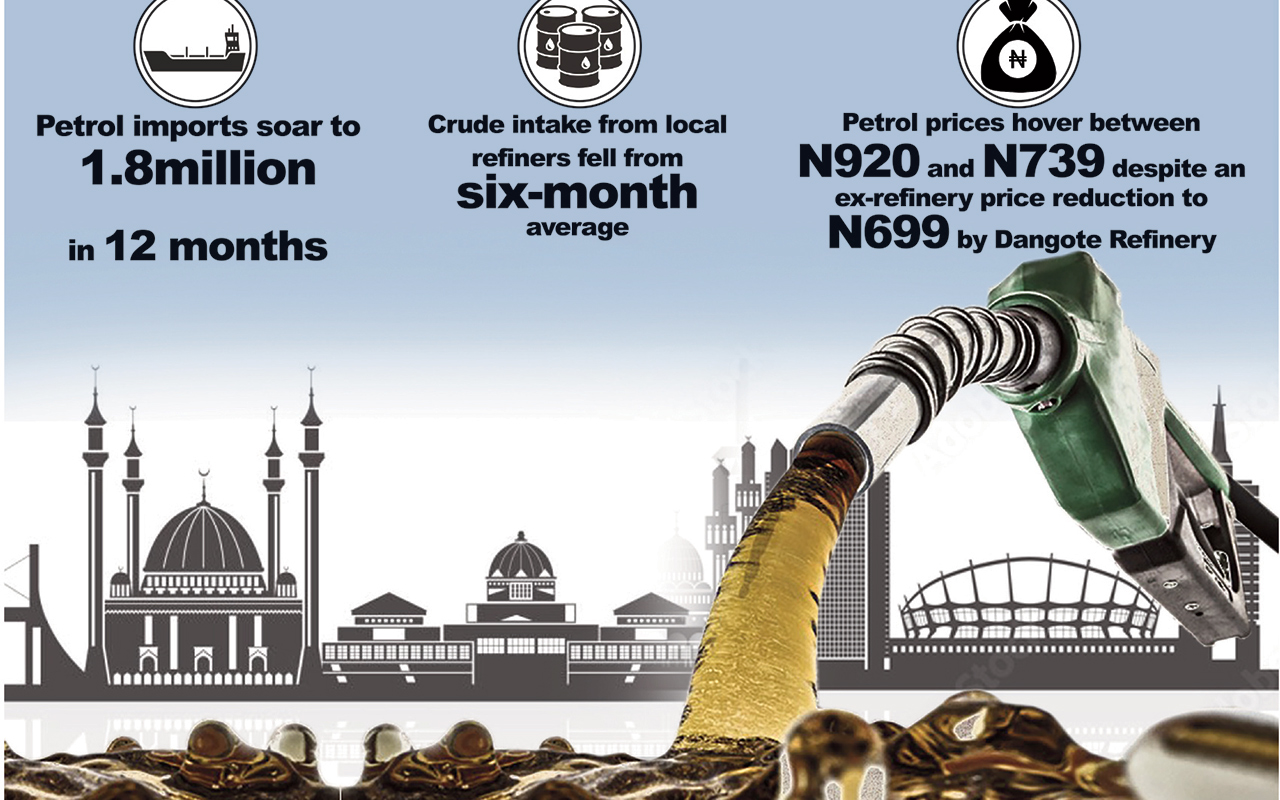The Depot and Petroleum Products Marketers Association of Nigeria (DAPPMAN) has refuted the allegation of the Dangote Petroleum Refinery, that powerful oil import cartels are manipulating labour unions and industry associations to frustrate its operations.
Dangote, in a statement on Monday accused the Nigeria Union of Petroleum and Natural Gas Workers (NUPENG) and DAPPMAN of opposing its recent reduction in petrol prices.
Reacting on Wednesday in a statement signed by the management, DAPPMAN said it “categorically rejects the misleading and factually incorrect statements made by the Dangote Petroleum Refinery in its press release of 15 September 2025.
“As an association representing legitimate depot owners and morketers in Nigerio’s deregulated downstream sector. we are compelled to correct the record and address claims that threaten the integrity of our industry. mislead the public, and undermine regulatory confidence.”
It added that the allegation that DAPPMAN was behind the strike by NUPENG was false and baseless.
“The refinery’s claim that DAPPMAN sponsored NUPENG suggests a fundamental lock of understanding of how Nigeria’s downstream ecosystem works. Stakeholders such as NUPENG, NARTO, PETROAN, MEMAN, IPMAN, and DAPPMAN are independent entities, each with distinct roles and interests,” the statement read.
DAPPMAN explained that it does not control labour unions of other industry associations and has no business interfering in the decisions.
It stated that it did not sponsor or support NUPENG’s proposed industrial action, as its role has been one of de-escalation, focused on averting disruption to fuel supply and national mobility.
On the market pricing, DAPPMAN said it is not a Dangote-driven outcome, explaining that the recent reductions in pump prices are primarily the result of: A stronger naira (M1,500-1,550/§$ since Q1 2025). supported by the fiscal and monetary reforms of President Bola Tinubu’s administration and the Central Bank of Nigeria (CBN).
It stated that another factor is the declining international crude prices (Brent crude fell from $92 to $76 per barrel), market deregulation and improved foreign exchange (FX) liquidity under the current administration.
Speaking further, DAPPMAN questioned why Dangote’s exports thrive in open markets and why not in Nigeria?
“The Dangote Refinery has, in recent times successfully exported refined petroleum products to the United States and other countries with well-established refining capacity and competitive supply chains. These markets, despite having robust domestic production, remain open to external suppliers in the interest of supply diversity and market efficiency, if such countries had adopted restrictive trade practices, these export opportunities would not have existed,” DAPPMAN said.
It stated that this underscores the global valve of open, competitive supply chains, a principle Nigeria must uphold, not abandon.
DAPPMAN further stated that round-tripping accusations are misleading: “Allegations that Nigerian marketers import Dangote-refined products from Togo are both misleading and ironic.
“For clarity, Offshore Lome is a recognized West African (WAF) trading hub, not a blending plant, as some commentators have suggested. Just as the Dangote Refinery is a refinery and not a factory, Offshore Lome is a trading point where cargoes are exchanged. not processed.”
DAPPMAN said pricing “Offshore Lome” reflects international market transactions and is not the same as retail pricing within Lome, Togo.
It said it is, in fact, the Dangote Refinery that offers discounts of over $40/MT to foreign traders while denying Nigerian marketers access to coastal vessel loading and restricting them to gantry-only lifting, adding that this restrictive access and pricing structure create the very arbitrage opportunity the refinery now criticizes.
DAPPMAN added that Dangote’s claims that its members import fuels with sulphur levels above 50ppm contradict its own operational record.
It explained that the refinery itself applied for waivers from the Nigerian Midstream and Downstream Petroleum Regulatory Authority (NMDPRA) to distribute high-sulphur products, in direct contravention of PIA Section 317(11), challenging the refinery to publicly deny this.
According to DAPPMAN, the NMDPRA maintains daily logs of toad’ng and dispatch volumes across oll depots and terminals, including Dangote.
It said claims about “actual consumption” volumes are outside the refinery’s jurisdiction, stating that if Dangote seeks credibility, it should open its production and dispatch records to independent audit.
DAPPMAN also maintained that the refinery currently supplies no more than 35% of national consumption, while on the market structure, it said there is no shortcut to scale its members who operate hundreds of depots and thousands of filling stations across Nigeria.
“This national infrastructure cannot depend on a single supply source or be replaced by a one-location refinery. Attempts to do so signal a deliberate push toward monopolisation,” DAPPMAN said.
“We reject statements that belittle the infrastructure and investment of marketers and distributors as “mere assets.” Such remarks are disrespectful to the hundreds of billions invested by Nigerian entrepreneurs over decades.”






